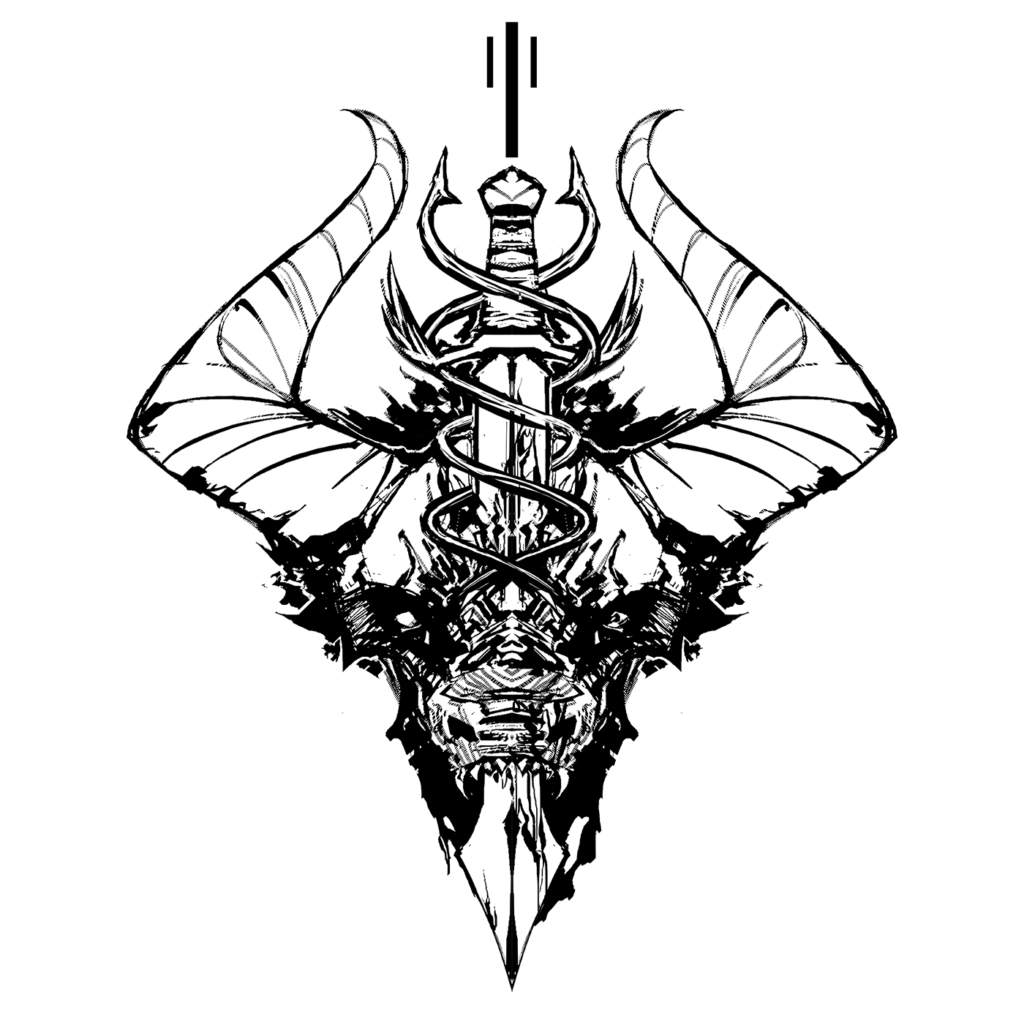
Photo by Alissa Wise
Our conversation kicked off with a discussion of childhood video games, specifically in the magic that’s found in the soundtracks to classics like Street Fighter, Megaman, Kingdom Hearts, and others. “I come from a visual art background, and video games were a big part of that. As I started developing as a visual artist and went to college, I came across Flying Lotus. Those are usually the sounds I end up gravitating towards, though I don’t set out to make specifically video game music.” The EP is full of synth-laden beats that borrow from a hip-hop background.
In November of 2019, Seraah released his second EP, a four track effort titled Sad Satan (in case you were wondering what compelled me to sit down and talk to him, this album title could double as the header for my consistent mood board). To coincide with the release, Seraah performed a show at WBUR’s Cityspace on Commonwealth Avenue. Additionally, he performed recently in more of a rave atmosphere at the Dorchester Art Project.

Sad Satan Cover
He dives into his songwriting process, a fluid river of creativity that starts simply enough: “It usually starts with a loop. Once I’ve found that and constructed a motif, the job is to stretch it out and start building a world where the vocals can tell a narrative. The loop generates ideas. Then the song might end up completely different, but it’s about having that entry point.”
We begin to unpack the thematic content of Sad Satan and how, over the EP’s four tracks, Seraah is able to craft a narrative. While it doesn’t exactly tell a character-centric story, it mulls over ideas of morality. “Sad Satan is a culmination of thoughts and feelings and meditations on where we are as a species. It’s that idea of choosing good or evil, or being morally and ethically ambiguous. Maybe that ambiguity is a place of enlightenment, because you’re not judgmental, or maybe it’s a cop out. Or maybe being bad is part of your soul contract on Earth. We’re at a time when we’re experiencing a lot. The climate, politics, the whole socio-political sphere, information overload. Even just the last year: there are so many things that have been so intense. Sad Satan, from a bird’s eye view, is my way of accepting what is happening.”
In his music, Seraah dabbles with religious imagery. In many ways, Sad Satan operates as a companion to Milton’s Paradise Lost, a literary work that pays particular attention to painting the devil as a sympathetic protagonist and analyzes the way we choose to accept or reject God in our lives (as religion can be a touchy subject, for our purposes here, we’re using “God” and similar words here to denote spiritual energy rather than adhering to any specific religion’s belief in a higher power). Specifically, Seraah unravels what it means to suffer. “At one point, suffering just *is*. I’m always working through a magical realist lens and playing with the malleability of words and how those words paint pictures.”
He breaks down some of the meanings behind the tracks and their lyrics. The opener, “Drowned in Fire,” features compelling imagery and lines, especially the inverted elemental image of “drowning in fire, burning in a lake.” In his words, “The two worst ways of losing your life are kind of the same: just really brutal ways of experiencing trauma, even if the process is a little different. Suffering is suffering. We’re all here, going through something. That song is more the physical aspect of this journey.
As for the EP’s title track, it, “speaks more to looking at myself and humanity and the greater story of good and evil. I’m not trying to make harsh judgments, but just commenting on the play-by-play. The idea is of falling far from grace and your hubris making you blind because you’re not able to see the full scope of things. Imagine that you are so self-absorbed that everything around you fades to black. All this greed and corruption out in the world is due to a lack of love, a lack of empathy, and an increasing lust of self gluttony. Love is lost, not just intimate or romantic love, but the love of appreciating what you have around you: the good times, the bad times, and the insights they provide.” In his words, we cannot remain passive in our roles as humans. We must first take agency to save ourselves – without relying on extraneous forces – in order to find our moral compass and stay true to our values. “We have to take accountability for our actions. We can’t sit on our hands morally and ethically and let life pass us by. We can’t keep allowing the zeitgeist – what’s happening in the world – to be the guiding forces in our lives.”
On the song “Solomon,” Seraah identifies with the titular Biblical king, who is known for his knowledge and faith, but equally so his status as a practitioner of mysticism. “[He] was a powerful figure: super wise, super wealthy, super assured. He was known for having angelic wisdom, while also being able to control dark forces. He wasn’t an evil person, but he did have dominion over the demonic forces and could command them as he saw fit. [T]his is about confronting darkness, looking at myself, and the world, and making something from that, it’s about alchemy.” These are sage words, and serve as a valuable lesson we can all take to heart, regardless of our religious beliefs or background: what is our role in the world, and how do we contribute – either positively or negatively – to the salvation of our collective human soul?
Listen to Sad Satan below, and be sure to follow Seraah on social media to keep up with the artist’s future releases and performance schedule.
